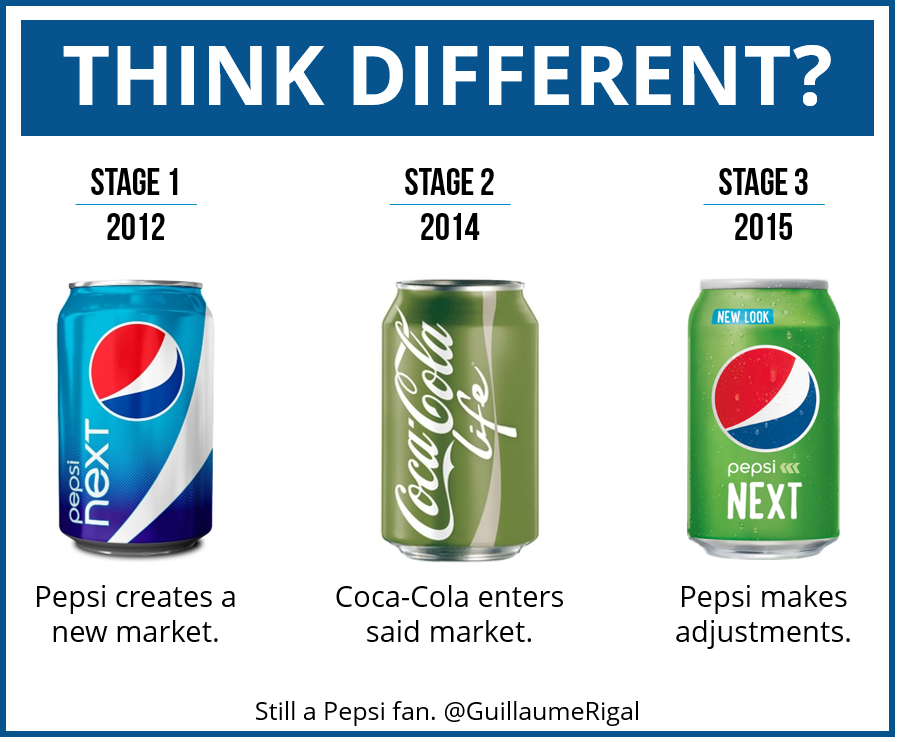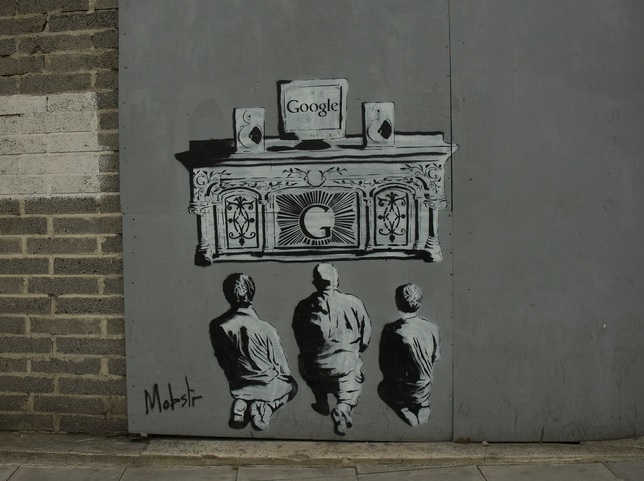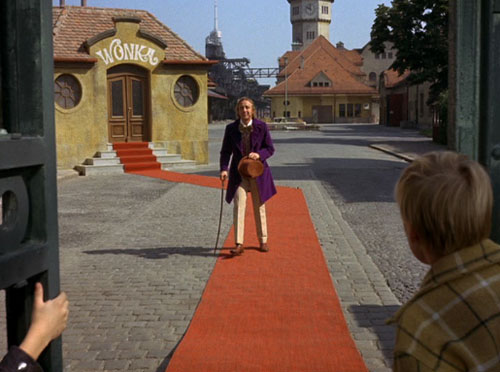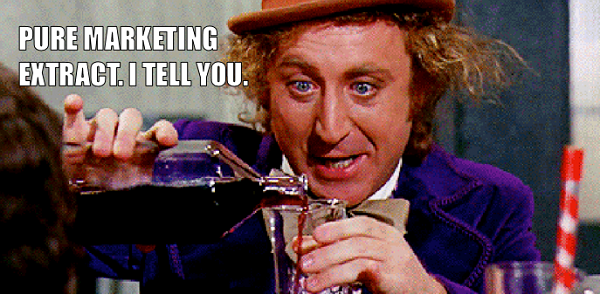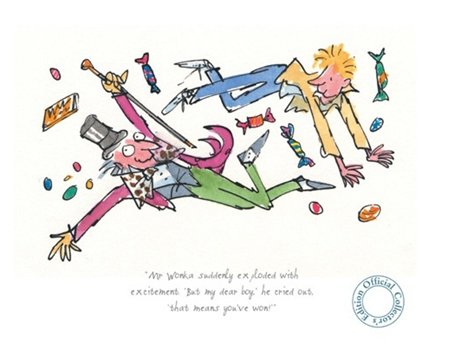

The book this week may seem like an oddball choice. What does Orwell’s classic Animal Farm have to do in a book review for Marketing professionals?
have to do in a book review for Marketing professionals?
When I decided to launch this series, I set for myself to choose classic books, not limited to Marketing, not the latest fads. Strong writing that could teach us valuable lessons and inspire us.
In Animal Farm, I see a powerful and inspirational book.
1) It reminds us that marketing can be a powerful force for good as well as for evil.
Propaganda is a very potent form of Marketing, often very efficient, but aimed at conveying and pollinizing evil ideas. In Animal Farm, there is no doubt about the kind of totalitarian regime that Orwell is depicting through a fable. Orwell had been a first-hand witness of the war in Spain and wanted to alert its contemporaries about the real nature of the (then alluring) communist model.
Orwell shows the mechanic of how a totalitarian regime emerges in a grotesque way. That being said, Orwell is very close to the truth. I remember a discussion a couple of years ago with a friend in Germany who was a child when Hitler and his party rose to elected government. His dad was smoking and cigarette packs were coming with animal cards kids could collect. He showed me how that evolved under the influence of the Nazis into propaganda items – animals in that case, were slowly replaced by soldiers and other icons of nationalism.
So yep. Propaganda, fact fabrication, rhetoric and oratories, youth indoctrination, fearmongering, anthems… it’s all in Animal Farm.
Seth Godin (in the book from last Tuesday) makes a strong argument that marketer have to be a force for good. I can only support that:
“Marketing is powerful. Use it wisely” –Seth Godin
One of many examples in Animal Farm:
Starvation seemed to stare them in the face. It was vitally necessary to conceal this fact from the outside world. (…) Napoleon was well aware of the bad results that might follow if the real facts of the food situation were known, and he decided to make use of Mr. Whymper (note : the animal’s intermediary) to spread a contrary impression. (…) A few selected animals, mostly sheep, were instructed to remark casually in his hearing that rations had been increased. In addition, Napoleon ordered the almost empty bins in the store-shed to be filled nearly to the brim with sand, which was then covered up with what remained of the grain and meal. (…) Whymper was led through the store-shed and allowed to catch a glimpse of the bins. He was deceived, and continued to report to the outside world that there was no food shortage on Animal Farm.
2) It goes a long way to show storytelling is maybe the strongest device in our arsenal.
Storytelling is such a strong tool to make ideas progress that I’m still puzzled it’s not used better and more often by marketers. This was the main point in Seth Godin’s book from last Tuesday. It’s very well exemplified with Orwell’s world renowned best seller. I am sure there are many essays and thesis written on the topic of totalitarianism and how it arises. Yet, in 140 pages, Orwell does a better job to spread the idea than any other author. The fact it is a tale makes the concept easier to grasp, more approachable. And this makes the point even more poignant as there is a perfidious irony in using animals in a farm to make that point. Orwell blatantly called Russian communists pigs. It’s crazy he didn’t got assassinated for this.
For instance, Orwell created typical profiles examplpified by animal species – don’t they fit people you have had on your projects? The work horse, the smart ass, the useless but adorable cat.
Boxer was the admiration of everybody. He had been a hard worker even in Jones’s time, but now he seemed more like three horses than one; there were days when the entire work of the farm seemed to rest on his mighty shoulders. From morning to night he was pushing and pulling, always at the spot where the work was hardest. He had made an arrangement with one of the cockerels to call him in the mornings half an hour earlier than anyone else, and would put in some volunteer labour at whatever seemed to be most needed, before the regular day’s work began. His answer to every problem, every setback, was ‘I will work harder!’ — which he had adopted as his personal motto.
And the behaviour of the cat was somewhat peculiar. It was soon noticed that when there was work to be done the cat could never be found. She would vanish for hours on end, and then reappear at meal-times, or in the evening after work was over, as though nothing had happened. But she always made such excellent excuses, and purred so affectionately, that it was impossible not to believe in her good intentions.
Old Benjamin, the donkey, seemed quite unchanged since the Rebellion. He did his work in the same slow obstinate way as he had done it in Jones’s time, never shirking and never volunteering for extra work either. About the Rebellion and its results he would express no opinion. When asked whether he was not happier now that Jones was gone, he would say only ‘Donkeys live a long time. None of you has ever seen a dead donkey,’ and the others had to be content with this cryptic answer.
Dreams and personal anecdotes are always sure crowd pleasers:
“And now, comrades, I will tell you about my dream of last night. I cannot describe that dream to you. It was a dream of the earth as it will be when Man has vanished. But it reminded me of something that I had long forgotten. Many years ago, when I was a little pig, my mother and the other sows used to sing an old song of which they knew only the tune and the first three words.”
3) It keeps us on our toes, alert and agile in our often bureaucratic environments
Work hard but step back and be careful of the tyranny of bureaucracy. Use your judgment before your launch into a project with all your might. Reevaluate goals. There is a time to be Boxer, the strong horse whose indefectible support to the cause is laudable. And there is a time to be the whistleblower – like Benjamin the Donkey, who incidentally warns the animals that Boxer is not being taken to the hospital but by the knacker.
The story of the building of the windmill is a very good warning for businesses, and especially for us marketers. The animals are promised “heaters and hot and cold waters” as a benefit of building a windmill. They never openly question the project. After many sacrifices, they build and rebuild the windmill. And even when it’s ready, they learn they have to build another one to generate electricity as the first one is put to another use. If that doesn’t make you raise an eyebrow and think about a lousy project that you’ve had to work on (CRM integration? Corporate website with a CMS? Marketing automation platform?), then what will?
The windmill had been successfully completed at last, and the farm possessed a threshing machine and a hay elevator of its own (…). The windmill, however, had not after all been used for generating electrical power. It was used for milling corn, and brought in a handsome money profit. The animals were hard at work building yet another windmill; when that one was finished, so it was said, the dynamos would be installed. But the luxuries of which Snowball had once taught the animals to dream, the stalls with electric light and hot and cold water, and the three-day week, were no longer talked about.
We, human beings, seem to be very strong in creating work for works sake or to just justify a headcount. A regular evaluation of routine tasks, projects, relationships, newsletter… and their legitimacy should be part of every manager’s job description.
There were so many pigs and so many dogs. It was not that these creatures did not work, after their fashion. There was, as Squealer was never tired of explaining, endless work in the supervision and organisation of the farm. Much of this work was of a kind that the other animals were too ignorant to understand. For example, Squealer told them that the pigs had to expend enormous labours every day upon mysterious things called ‘files,’ ‘reports,’ ‘minutes,’ and ‘memoranda.’ These were large sheets of paper which had to be closely covered with writing, and as soon as they were so covered, they were burnt in the furnace. This was of the highest importance for the welfare of the farm, Squealer said. But still, neither pigs nor dogs produced any food by their own labour; and there were very many of them, and their appetites were always good.
4) Ain’t we lucky to live in a free world?
Finally, in a week of thanksgiving for our American readers, let this book be a reminder to all of us lucky enough to live in a true democracy of our good fortunes. We are free to do business in a mostly fair “playground”, to speak our mind and advertise our services.
ALL ANIMALS ARE EQUAL BUT SOME ANIMALS ARE MORE EQUAL THAN OTHERS
Animal Farm is a short but rich book, notably for the Marketer.
What do you think? Please join our Tuesday Marketing Book Club linkedin group to discuss.
PS- You can buy a copy on Amazon here: Animal Farm







